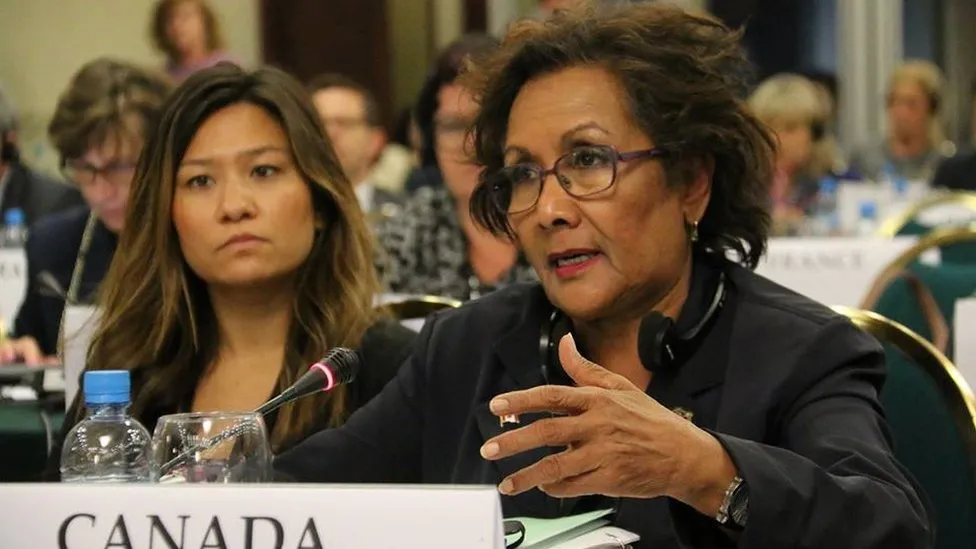Canada MPs probe ways to curtail fake news – BBC News
Canadian politicians are weighing ways to curtail “false news” as part of a broader study into the impact of digital technology on journalism.
The federal heritage committee is discussing the future of media in the country.
Committee chair Hedy Fry says in the past few months witnesses have repeatedly raised the issue of “false news and the post-truth era”.
She says the concerns have “galvanised” the committee.
“We saw what happened in the United States,” the Liberal MP said. “The United States woke everybody up.”
“You had people making up stories and putting it out there. You had people judging a person’s character, making a decision about policy based on total fabrication and going out there and voting on that.”
Fictional news became an issue during the US presidential election, with fake news websites springing up during the campaign.
The misleading, sensationalist stories spread widely on social media.
“This is a brand new horse that’s bolted out of the stable and people are still chasing the horse trying to find out what’s going on,” said Ms Fry.
The committee began looking at the impact digital technology has had on Canada’s media industry in February. It expects to table its final report with recommendations next spring.
The MPs have heard from more than 120 witnesses, including representatives from Facebook, Google, and the country’s largest media companies.
University of Calgary assistant professor Gregory Taylor, who researches media and democracy, told the BBC that the suggestion of increased regulation was often enough for companies like Google and Facebook to take notice.
“Just the threat of government being involved can have an impact,” he said, pointing to Germany, where Facebook, Google and Twitter recently agreed a deal to remove hate speech posted on their websites within 24 hours.
The White House has also weighed in on phony content concerns. This month, press secretary Josh Earnest said false news had a “corrosive effect” on American society after a North Carolina man was arrested for firing a rifle inside a pizza restaurant in Washington DC that was the target of a fake US election story.
The Pope, external and President Barack Obama have also criticised the spread of fake news online and its potential impact.
Facebook has already announced new features to help combat fabricated news stories.
In November, it also teamed up with Internet search giant Google to restrict advertisements on sites carrying false content.
But Ms Fry said this was a complex issue with no easy solutions.
“How do you ensure people get verifiable news without impacting the freedom of the press?” she asked. “This is a really difficult thing.”


